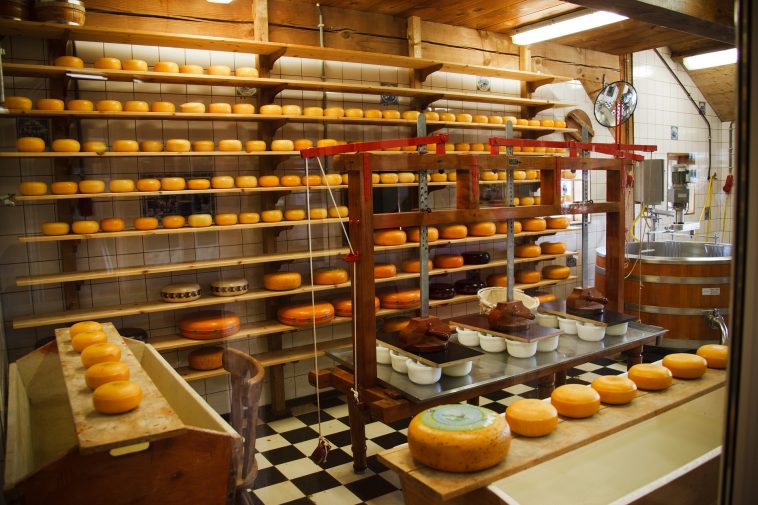Orda, a Nigerian food tech platform that helps small, independent restaurants solve these problems by giving them a cloud-based restaurant operating system, has announced a $3.4 million seed investment. The two-year-old startup got $1.1 million in pre-seed funding in January, bringing its total budget for this year to $4.5 million.
Quona Capital, an investor in emerging markets, and FinTech Collective, based in New York, led the round together. Some of the others are existing investors like LoftyInc Capital, Enza Capital, and the Norrsken Foundation, as well as new venture capital firms like Outside VC and Far Out Ventures.
With this new investment, one of the goals of the food tech is to build and scale its ability to accept payments. Other plans include expanding its restaurant chain and expanding across Africa (into South Africa and, much later, Ivory Coast).
In this way, it has strengthened its leadership team by bringing in Afua Ahwoi, who used to work at Goldman Sachs as head of operations and strategy, and Modesola Osasomi, who used to work at Barclays Bank as head of growth, for its next phase of development.
Why we started
Since it started, the company has made a lot of progress. Futi says that small restaurants in its two markets, Nigeria and Kenya, have used Orda a lot and that the startup has already reached product-market fit.
His conviction originates from the 600 merchants it has attracted and the speed with which the food tech has onboarded them in less than a year.
The CEO of Orda says that the company plans to serve more than 1,000 restaurants by the end of Q1 2022, and “hundreds more” are in the works. Orda’s business has grown as well.
Orda’s business has grown as well. It handles more than 50,000 orders from its vendors weekly, five times as many as it did in January. Each month, its gross merchandise value (GMV) goes up by 30%. According to Futi, “we are witnessing rapid growth in Nigeria and Kenya, with retention rates above 95%.”
It gives restaurant owners a lot of power when they switch from pen and paper to a fully automated digital platform. Then, they suddenly have access to information that can help them increase their productivity and profits and grow their businesses. Kofoworola Agbaje, a senior investment associate at Quona Capital, said that a solution like Orda could significantly affect small and medium-sized restaurants and the people who run them.
A Look At What The Startup Does
Orda has been around since 2020, and most of its clients are small and medium-sized restaurants. Because these restaurants don’t have much access to technology, they usually use offline methods, like pen and paper, for things like manual reconciliation and inventory management.
Orda’s operating system lets these businesses handle these parts of their business online. It also gives them access to other features, such as kitchen display systems, accounting software, and integrations with aggregators like Bolt Food, Chowdeck, Bolt Food, and Glovo.
The chief executive officer, Guy Futi, noted that the company takes a unique approach to the software and helping restaurant owners set up. “Those who type things out by hand can use our software to digitize their process, which assists them in figuring out their inventory management and recipe yields,”
Orda’s pricing model lets restaurants choose from three payment plans: N1,000 ($1.54), N5,000 ($7.69), and N20,000 ($30.76). These plans give restaurants access to different parts of the software, such as order management and an omnichannel, as well as integrations with food aggregators and delivery platforms and setup personnel. Futi says that because of this, sales have gone up by 30% every month.
Even with this growth, coming up with solutions for these African restaurants has been challenging, especially since there needs to be a playbook. Orda, for example, had to set up its cloud-based solution to work offline and let restaurants keep logging data even when they couldn’t connect to the internet.
Orda, on the other hand, wants to add more features to its platform, especially around finances, so that its customers can borrow and pay. Futi says that the platform handles payments for 10% of its vendors and that a big rollout could start in the second quarter of next year.
When asked if Orda plans to move into these other areas, Futi said that doing so would be a wrong business move because it would take the startup’s attention away from making software.
Fikayo Akinwale, Mark Edomwande, Kunle Ogungbamila, and Namir El-Khouri founded the firm. “Globally, you notice that Sysco isn’t in the same vertical as Toast,” the founder remarked.”We’ll be willing to work with other players if there’s a way. But from where we stand, making the right software is like going down a rabbit hole, which needs concentration.”
 We just launched our WhatsApp channel. Want to get the latest news from the Tech in Africa?
We just launched our WhatsApp channel. Want to get the latest news from the Tech in Africa?



